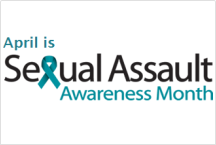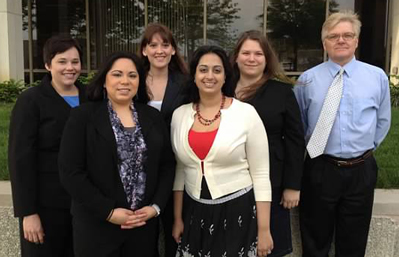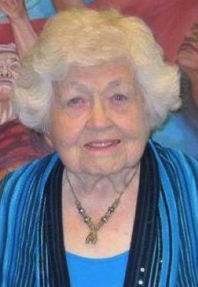Spring 2012 Newsletter
Dear Friends and Colleagues,
April is Sexual Assault Awareness Month. What do we need to be aware of this month?
Rapists often prey upon victims they see as vulnerable; or who they believe lack credibility; or who they believe may be less likely to report the rape; or who may not be able to talk about the rape. This is why immigrants, children, elderly, people with disabilities, young women, and gays and lesbians may all be targets. This is what we need to be aware of during Sexual Assault Awareness Month.
Rapists (and these are often serial rapists) know that a victim who is intoxicated will often not be believed. They use alcohol or drugs to facilitate the sexual assault. They know the intoxicated victim will not be credible in the eyes of the criminal justice system and its juries. They know this victim may not have the strength to overcome the sense of guilt and self-blame that is so common for rape victims. This is what we need to be aware of during Sexual Assault Awareness Month.
Rape and sexual assault happens with impunity across the state. “Impunity” means “exemption from punishment. In the international law of human rights, it refers to the failure to bring perpetrators of human rights violations to justice and, as such, itself constitutes a denial of the victims’ right to justice and redress.” A significant portion of our rural counties have no rapes reported to law enforcement. This is what we need to be aware of during Sexual Assault Awareness Month.
Many rape victims deal with their assaults alone. Many never tell anyone of the assault, ever. Many only talk about it after many years have gone by. They don’t know where or how to get help. They don’t know who they can trust. They worry about their privacy. This is what we need to be aware of during Sexual Assault Awareness Month.
Sexual assault victims are sometimes/often treated badly when they do report the assault. They are threatened with “false reporting” if they just can’t face the trial. They are bullied in administrative hearings and threatened with expulsion from schools and universities after being blamed for their own victimization. They are unable to return to their apartments where they were raped but have no one to help them get out of their lease. They are sometimes unable to get a protection order because the statute does not specifically say, “sexual assault is bodily injury.” They are devastated by a prosecutor who offers photos of the rape to parents of other teens at the keg party. This is what we need to be aware of during Sexual Assault Awareness Month.
Sexual assault is pervasive and all too common. It impacts all of us whether we are direct victims/survivors or whether we are the grandparent, sister, brother, husband, father, mother, or friend of the victim. This is what we need to be aware of during Sexual Assault Awareness Month.
Sexual assault impacts one’s soul and it tears at the fabric of our community. When someone gets away with rape, that person assaults us all. When a survivor has no one to turn to, that diminishes all of us. This is what we need to be aware of during Sexual Assault Awareness Month.
This Sexual Assault Awareness Month, tell someone you know that free and confidential hotlines are available 24 hours a day, 7 days a week; that more and more law enforcement, nurses, teachers, social workers, and others are learning about the devastating impact of rape and sexual assault; that rape is not your fault. This is what we need to be aware of during Sexual Assault Awareness Month.
Sincerely,
Joyce Grover,
Executive Director

The Kansas Coalition Against Sexual and Domestic Violence invites you to join us in marking April as Sexual Assault Awareness Month (SAAM).
Sexual violence is one of the most pervasive and serious public health issues in this country. Nearly 1 in 5 women and 1 in 71 men have been raped in their lifetime. (NISVS, 2010) In Kansas, one rape is reported to law enforcement every eight hours. (KBI, 2010) Rape is one of the top 10 most prevalent person crimes in Kansas.
Most perpetrators of sexual violence abuse people that they know, often using their positions of trust and authority in order to do so. According to the KBI, “approximately 22.2 percent of all reported rape offenders in Kansas were arrested [in 2010]. This is a small portion of rape offenders when one considers that approximately 75.5 percent of the offenders were known to the victim.” (KBI, 2010)
Services for victims of sexual assault are essential. In 2011, KCSDV member programs answered 1,459 sexual assault hotline calls, provided free and confidential services to 4,047 survivors of sexual assault, and provided nearly 10,000 hours of individual and group counseling to adult and minor survivors of sexual assault. Without these critical services, survivors would be left to recover without the benefit of support and connection that programs can provide.
Sexual violence can be prevented. During SAAM, KCSDV calls on systems to understand the conditions that increase risk for perpetration and victimization. Approximately 80 percent of female victims experience their first rape before the age of 25, and nearly 1 in 3 male victims were first raped when they were 10 years old or younger. While no groups are free from violence, consistent patterns show that women, young people, and racial and ethnic minorities are the most heavily affected subpopulations of sexual violence in the US. Working together as communities will reduce these numbers and risks.
Many events and activities are being held in Kansas as a part of SAAM. Find an event near you.
For more information about KCSDV, or to find a rape crisis center near you, visit kcsdv.org.
Executive Director
National Network to End Domestic Violence
Hi friends of NNEDV,
Today I became part of something amazing and I wanted to let you know. It’s called NO MORE, and we’re using a powerful new symbol to unleash national attention on an issue that impacts 12.7 million of us every year. That’s 24 people every minute.
Many people think that domestic violence and sexual assault don’t affect them, but they’re wrong.
These are people that we know. They’re our mothers, girlfriends, brothers, sisters, children, co-workers and friends. These issues are massive but they’re still very hidden and misunderstood.
It’s time to change that.
I’m saying NO MORE to domestic violence and sexual assault by using this symbol and sharing it with everyone I know. I hope you will too.
You can find out more at www.nomore.org. Take the pledge. Spread the word. Together we can end domestic violence and sexual assault.
Thanks for taking a look!
Sue
Take Back the Night was held on April 3rd in Webb Hall on Emporia State University’s campus. The event was co-sponsored by Greek Life, Panhellenic Association, and SOS.
Take Back the Night is an event designed to bring awareness and empowerment to individuals and to bring an end to violence against women, specifically sexual assault.
Aneta Bodkin was the keynote speaker. Bodkin said that the human spirit is stronger than just about any situation and people can overcome situations from the past. They need not carry guilt or shame.
Several college students came forward to take back their voice and share their experience of childhood sexual abuse and rape. One participant said, “It’s amazing that so many people came forward to share their stories, it’s so brave, and so sad that in one room there are probably many more that did not choose to share. I’m glad I was here.”
KCSDV recently began providing legal services to survivors through the Legal Assistance to Victims (LAV) Project. The LAV project is intended to provide holistic legal representation to sexual assault, domestic violence and stalking victims at little or no cost to the client. Project staff includes Gary West, Senior Counsel for Legal Projects, Kursten Phelps, Immigration Project Attorney, Stephine Bowman, Protection Order Attorney, Shelby Grau, JD, Project Coordinator, and Jessica Vanderweide, Special Immigrant Legal Advocate.
Representation by an LAV attorney is limited to civil legal matters. The project has a special focus on developing legal representation for victims and survivors of sexual assault. Civil cases under this grant may include but are not limited to: civil protection orders, divorce, custody/visitation, paternity, immigration, disability, crime victim compensation, housing, employment, education, Title IX, name change, consumer, and administrative agency matters.

Survivors needing legal services should work with their local domestic violence/sexual assault program to complete and submit an application to the LAV team. All forms and information necessary to complete an application is available on the KCSDV member program pages at www.kcsdv.org. The project attorneys and staff are very excited to begin providing these much-needed services to survivors and to developing more legal representation for sexual assault survivors!
Pictured from left: Shelby Grau, JD, LAV Project Coordinator, Jessica Vanderweide, Special Immigrant Legal Advocate, Kursten Phelps, Immigration Project Attorney, Sara Zafar, Staff Attorney, Stephine Bowman, Protection Order Attorney, Gary West, Senior Counsel for Legal Projects.
It is with deep sadness that we announce the death of Praxis International advocate, Anne Marshall Pence, on April 10, 2012, age 90.
Anne was our colleague … friend … sister … mother … grandmother. She was a passionate, dedicated advocate, and she embodied what Praxis seeks to teach others about advocacy on behalf of women and their children.
Memorials can be made to the Minnesota Coalition for Battered Women.
Anne raised a family, worked as a school bookkeeper and an accountant in the private sector until her 60’s. Then, when most would be setting their sights on retirement, she began her work in the battered women’s movement. She committed her time and energy to this social change work until her final days. Anne was the mother of Ellen Pence, our former director, to whom she passed much of her skill and talent as a critical thinker and passionate activist – but Anne was an advocate in her own right and blazed her own trails.

Anne joined the collective of Women’s Advocates in St. Paul, Minnesota as an accountant in 1976. She brought expertise with finance to one of the first shelters in the nation, but was soon appreciated for her advocacy voice and willingness to challenge our movement to think more deeply and critically about sexism, racism, and classism and their impact on women and society. She approached advocacy as a partnership with women and staunchly adhered to the principle of keeping the voices of battered women central in our movement’s work.
In the 80’s she became an advocate at Alexandra House in Fridley then joined the staff of Home Free Shelter in Plymouth. She started the Brooklyn Center Intervention Project in 1983 – one of the first criminal justice intervention projects in Minnesota. Her wit, sharp mind and commitment to changing how battered women were treated within the legal system soon won over judges, police officers and the chief of police; the city proclaimed June 29th, 1990 as Anne Marshall Day in recognition of this work. She went on to concurrently run the Home Free Intervention Project in Crystal, Golden Valley and Plymouth. She was especially proud of the volunteers which were the foundation of each of these projects; many were survivors who took up the cause because of the advocacy and support they received from Anne.
Amanda McCormick, Cheryl Beardslee, Cyndi Cook and Julie Tilley
on behalf of the staff and board of Praxis International.
2012 Rape Crisis Center Survey
Sexual assault is widespread and devastating. According to the National Intimate Partner and Sexual Violence Survey/NISVS (CDC, 2011), nearly 1 in 5 women have been the victim of an attempted or completed rape and over 1.3 million women were raped in the U.S. in one year. Over 80% of women who were victimized experienced significant impacts such as PTSD, injury (42%) and missed time at work or school (28%).
Advocates help the criminal justice system respond better and help victims heal. A 2006 study found that when victims receive advocate-assisted services, they receive more helpful information, referrals and services and fare better in both short- and long-term recovery.
Results:
The survey revealed that most rape crisis centers have waiting lists for core services:
- 65% of programs have a waiting list for counseling services
- 30% have a waiting list for support groups
Advocates at rape crisis centers provide the nation’s frontline response to sexual assault at no cost to victims meeting victims at emergency rooms at all hours, answering 24 hour hotlines, providing crisis intervention, running support groups for both recent victims and survivors of childhood abuse, mentoring volunteers, and providing awareness and prevention programs to their communities. Many rape crisis centers serve broad geographic areas or dense population centers.
Unfortunately:
- 50% of programs have laid-off staff in the past year with over 100 advocates losing their jobs while over 120 positions were left vacant;
- 25% of programs have 1 FTE or fewer to provide direct services;
- 60% of advocates earn $20,000-$30,000 per year; and
- Almost half of centers offer no retirement related benefits.
During a time when our nation’s attention is engaged around sexual violence:
- 67% of rape crisis centers had to reduce the amount of hours they spend dedicated to prevention & awareness, and
- Almost 40% of programs have waiting lists for prevention programs.
Rape crisis centers ranked adolescent and teen survivors, the age group most at risk for sexual violence, as the most underserved population. Without awareness and prevention programs, young people are unlikely to know how and where to access support services.
These results are based on a 2012 internet survey conducted by NAESV with rape crisis centers across the nation with an approximately 25% response rate.
FOR MORE INFORMATION: Contact Terri Poore, Policy Chair at (850) 363-2918 or tpoore@endsexualviolence.org.
Sara Zafar joined KCSDV in March as Staff Attorney. Sara comes to KCSDV from Kansas Legal Services Hutchinson office. She also volunteered in the Wichita KLS office prior to that. Sara was a volunteer Victim Advocate with the Wichita Area Sexual Assault Center for over two years. She completed the advocate training and provided support and information to survivors of sexual assault on the crisis hotline and at the hospital during SANE/SART examinations. Sara graduated from the University of Kansas with a BA in History in May 2005, and from the University of Kansas School of Law in May 2008.
- Several Kansas advocates attended the 2nd Annual World Conference of Women’s Shelters. Diane Tillson of Liberal tells about her experience.
- Men are speaking up and supporting reauthorization of the Violence Against Women Act (VAWA).
- Announced this week: Sara Gamin, 24, Wins Pulitzer Prize for Coverage of Penn State Sex Abuse Scandal
- CNN has been covering the reports from women that the US Military has a pattern of using mental health diagnosis as a way to oust sexual assault victims.
- Check out the riveting Twitter campaign #ididnotreport, where sexual violence survivors tell their stories. While you’re there, follow KCSDV!
- After you’ve checked out @kcsdv on Twitter, head on over to Facebook and “like” KCSDV to get great updates!
KANSAS CRISIS HOTLINE: 888-END-ABUSE | 888-363-2287

